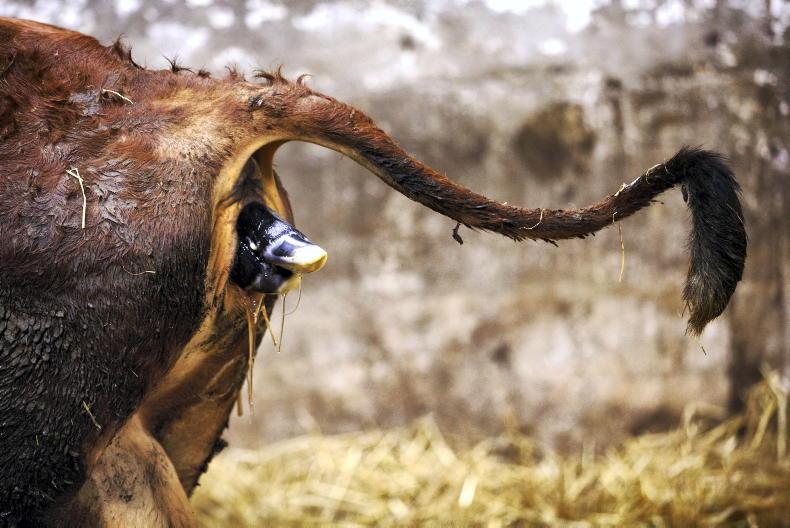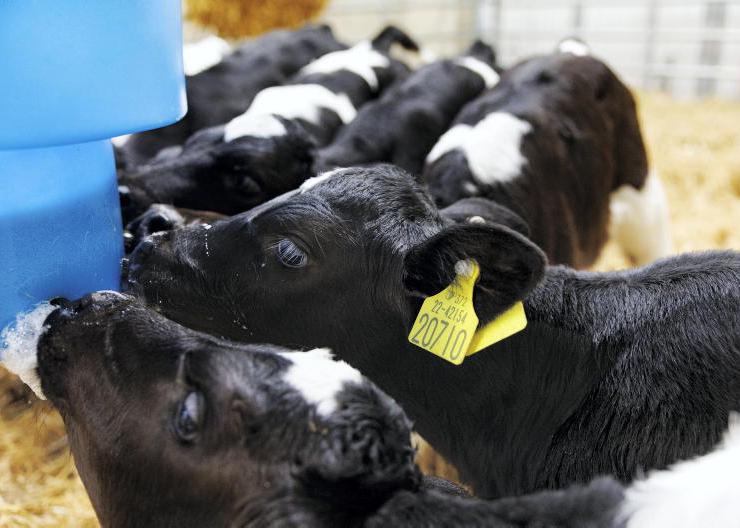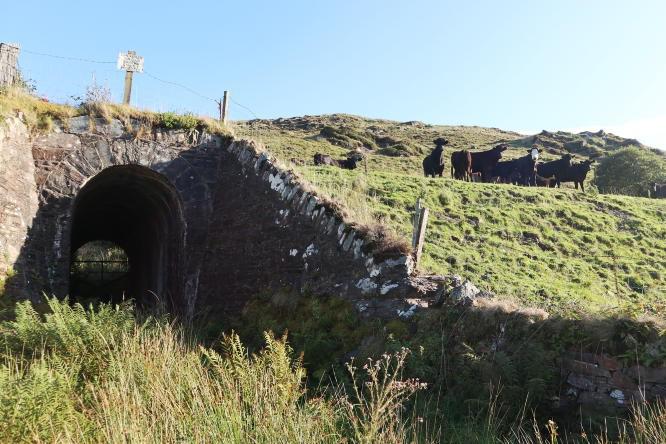While buying for the programme remains slow due to high calf prices, some calves continue to arrive at the demonstration farm.
These calves are coming directly from farms in close proximity to the demo farm at John Hally’s in Cashel, Co Tipperary, so there is no need to feed an electrolyte on arrival as journey time is minimal.
John has noticed a few calves with bloat issues over the past week to 10 days.
In most of the cases, the calves were fine again after a few hours, but baking soda had to be used for a couple of cases, while the vet was called to a calf with a bad case.
Bloat
Bloat in calves is different to larger animals, in that it is the milk stomach or abomasum that rapidly fills with gas, while for older cattle it is the first stomach or rumen that swells.
This means that stomach tubing a calf with bloat is less effective, as the tube typically stops in the rumen of a calf that is a few weeks old.
In bad cases, it is recommended that you call your vet, who can put a needle directly into the abomasum to relieve the pressure.
Cause
Bloat can occur a few days after arriving on farm, especially for calves transitioning from fresh milk to milk replacer.
Other areas to consider which can be a source of the problem is hygiene around feeding.
This was definitely not the issue on the demo farm, as John pays particular attention to feeding hygiene and all the feeders were fitted with new teats this year so there was no build-up of bacteria from last spring.
Another cause of bloat, which is more likely in this case, is too much protein in the diet.
This could be a little rich for calves if they were not on such a feeding level
The milk powder being used is 23.5% protein, while calves also have access at a 17% starter ration, which they are starting to pick at which could be adding to the issue.
This could be a little rich for calves if they were not on such a feeding level on the previous farm.
Currently calves are on 2.5l of milk replacer morning and evening.
In an attempt to try and correct the issue, John is looking at adding another half-litre to the feed while keeping the milk powder at the same rate.
The plan would be to reduce this over the course of a week or so back to 2.5litres/feed once the issue is resolved.
Water
Having access to clean water at all times is also very important for calves.
Milk to calves is a feed and not a drink. Calves have a requirement for water as well.
Where water intake is reduced, it can lead to bloat issues or stomach upsets.
Make sure water feeders are at the correct height for calves to drink from.
Nose-activated bowls are not suitable for calves, as they will not always know how to turn on the water.
Use a bowl with a ballcock to ensure a constant supply of water.
Check water sources twice daily to ensure there is no issues with supply or soiled water.










SHARING OPTIONS